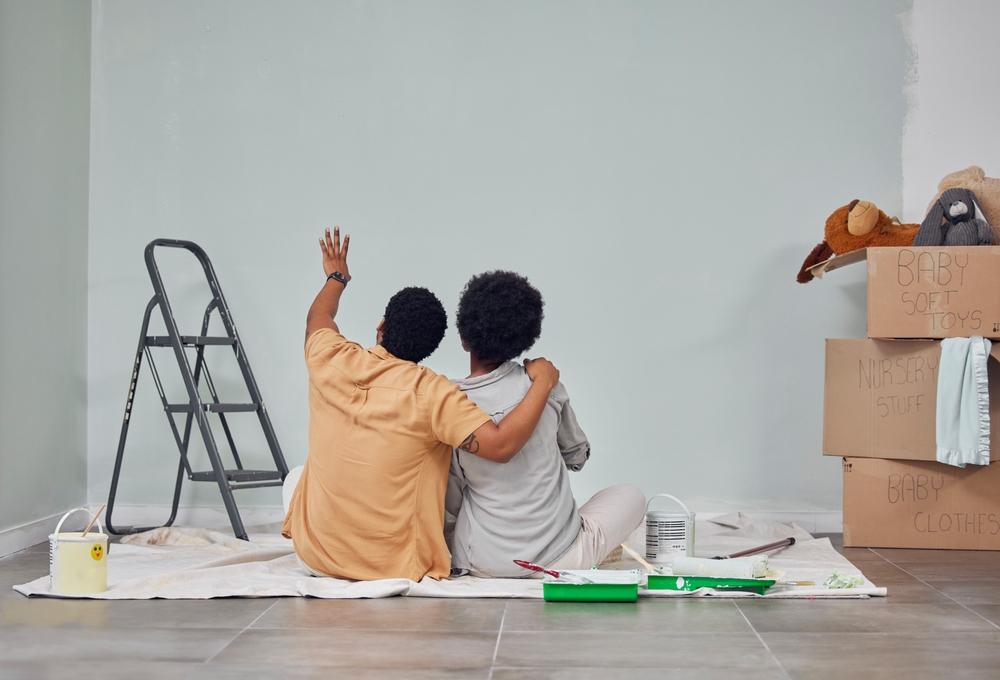Living together without the formal commitment of marriage has become increasingly common among couples. While the reasons for avoiding marriage can vary widely, there are compelling arguments for why these couples should consider purchasing a house together. This article will explore the motivations behind resisting marriage, the benefits of buying a home as a couple and how this decision can strengthen their relationship and financial future.
The shift in relationship dynamics
In recent years, societal norms around relationships have evolved significantly. More couples are choosing to cohabitate without tying the knot, opting for flexibility and independence over the traditional institution of marriage. This shift can be attributed to various factors, including changing attitudes toward commitment, financial considerations and personal experiences. However, despite their reluctance to marry, these couples can greatly benefit from investing in a home together. Let’s delve into why couples resist marriage and why buying a house together can be a wise decision.
Why couples resist marriage
There are several reasons why couples may choose to live together without getting married. Understanding these motivations can shed light on their relationship dynamics and help address any underlying concerns.
Fear of divorce
One of the most significant reasons couples avoid marriage is the fear of divorce. With divorce rates being relatively high, many individuals are hesitant to enter into a legal union that might end in a painful and costly separation. Living together allows couples to enjoy the benefits of a committed relationship without the potential legal and emotional complications of divorce.
Financial independence
Financial independence is another key factor. Marriage often involves merging finances and assets, which can be daunting for those who value their financial autonomy. By living together without marrying, couples can maintain separate bank accounts, investments and financial responsibilities, giving them a sense of control over their economic well-being.
Personal and family experiences
Personal and family experiences also play a crucial role. Individuals who have witnessed unhappy marriages or divorces within their families may develop a negative perception of marriage. These experiences can lead to a preference for cohabitation, which is perceived as a less risky and more manageable arrangement.
The benefits of buying a house together
While couples may have valid reasons for resisting marriage, buying a house together can offer numerous advantages that can strengthen their relationship and financial future.
Building equity and financial stability
One of the most compelling reasons for couples to buy a house together is the opportunity to build equity and achieve financial stability. Owning a home allows couples to invest in a tangible asset that can appreciate over time. Unlike renting, where monthly payments do not contribute to ownership, mortgage payments build equity, providing a financial cushion for the future.
Shared financial responsibility
Purchasing a home together requires shared financial responsibility, which can foster a sense of partnership and commitment. By jointly contributing to the mortgage, property taxes and maintenance costs, couples learn to manage their finances collaboratively. This shared responsibility can strengthen their bond and create a foundation of mutual trust and cooperation.
Creating a stable living environment
Owning a home provides couples with a stable and secure living environment. Unlike renting, where landlords can increase rent or terminate leases, homeownership offers long-term stability. Couples can personalize their space, make improvements and create a comfortable and welcoming environment that reflects their shared vision.
How buying a house together can strengthen relationships
Investing in a home together can have a positive impact on a couple’s relationship, promoting emotional and financial growth.
Long-term commitment
Buying a house together signifies a long-term commitment that can deepen the relationship. The process of purchasing a home requires careful planning, decision-making and cooperation, all of which can enhance communication and problem-solving skills. This shared goal can reinforce the couple’s dedication to each other and their future.
Enhanced communication and cooperation
The home-buying process necessitates open communication and cooperation. Couples must discuss their preferences, budget and priorities, which can lead to a better understanding of each other’s needs and desires. This enhanced communication can translate into other areas of the relationship, fostering a healthier and more supportive partnership.
Financial planning and goal setting
Owning a home together encourages couples to engage in financial planning and goal setting. They must consider their long-term financial objectives, such as saving for retirement, paying off the mortgage or making home improvements. This collaborative approach to financial planning can help couples develop a shared vision for their future and work together to achieve their goals.
Overcoming common concerns
While the benefits of buying a house together are clear, couples may still have concerns about this significant commitment. Addressing these concerns can help them make an informed decision.
Legal considerations
One common concern is the legal implications of buying a house without being married. Couples should seek legal advice to understand their rights and responsibilities. Creating as co-ownership agreement can outline each partner’s financial contributions, property ownership and procedures in case of separation or sale.
Financial readiness
Financial readiness is another important consideration. Couples should assess their financial stability, credit scores and debt levels before committing to a mortgage. Consulting with a financial advisor can help them determine their readiness and create a plan to manage their finances effectively.
Relationship stability
Relationship stability is crucial when making such a significant investment. Couples should have open and honest discussions about their long-term commitment and ensure they are on the same page regarding their future together. Seeking relationship counseling or premarital counseling can also provide valuable insights and strengthen their bond.
A path to a stronger future
While couples who live together may resist marriage for various reasons, buying a house together can offer numerous benefits that enhance their relationship and financial well-being. Building equity, sharing financial responsibility and creating a stable living environment can contribute to a stronger, more committed partnership. By addressing common concerns and focusing on their long-term goals, couples can make informed decisions that pave the way for a brighter and more secure future. Investing in a home together is not just about financial gain; it’s about building a life together, rooted in mutual trust, cooperation and shared dreams.













